Picture this: Liverpool captain Jordan Henderson staring into the distance with the Kop at his back and the wind in his hair. His eyes are a picture of melancholy, and his right bicep is conspicuously flexed where it meets his armband. He’s just driven through a scattered Manchester United defence to face David De Gea, and then scuffed the finish with a comical flourish. Everything about him that can be changed screams Stevie G, but the intangible fact that he simply isn’t as good hovers infallibly above. Gerrard would have buried the finish, Gerrard was a class above – Henderson’s Liverpool, and Sunday’s opponent Manchester United, are heading in the opposite direction.
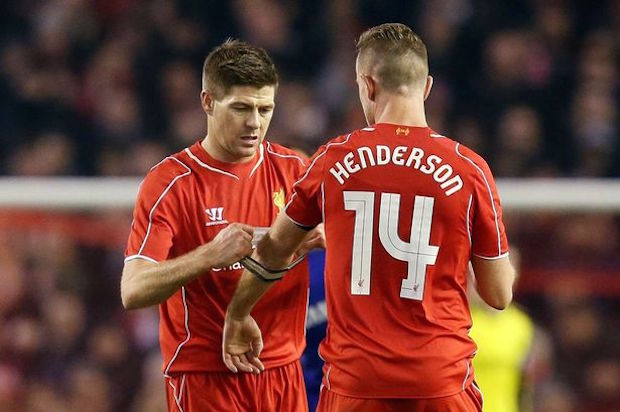
Despite the lack of recent success, there’s still been a certain panache to fixtures between Liverpool and United. The most successful team of the pre-Premiership era against the side whose dominated the new league since its inception. Until now, the fact that the Reds haven’t won a title since 1991 hasn’t seemed to matter. The atmosphere at Anfield is always turbocharged before kickoff, and never more so than when United rolls into town. If the Merseyside Derby is ‘friendly’, than this makes up for the crosstown niceties by being anything but. When the Liverpool supporters rise for a rendition of You’ll Never Walk Alone, most visiting supporters take it in and watch. When they sing it before this fixture, its met with the defiant and repetitive chant of ‘United, United, United’. The roar as the whistle is blown is closer to a World Cup knockout fixture than it is to a Premiership match. There’s always the sense that something might happen.
That sense endured until yesterday, and then something snapped. Whether it happened when it became clear that United had no intention of actually playing entertaining football, or when Jurgen Klopp named a midfielder up top and left Belgian battering-ram Christian Benteke on the bench is irrelevant. Something was lost last night. The grandeur of the fixture was met with some of the drabbest football seen this season. An early bout of handbags threatened to get something started, but then it lapsed into nothingness again.
The most exciting passage of play in the first half, excluding a few of Anthony Martial and Emre Can’s more valiant efforts to kickstart something in spite of their teammates’ malaise, was the introduction of Cameron Borthwick-Jackson after Ashley Young decided he had had enough. Not only did it give the commentators the chance to tell us that he shares the title for the longest name in Premier League history (26 characters!), and that he drives a Vauxhall Corsa which sticks out like a sore thumb amidst the Aston Martins at United’s training ground; but we got to sample his unorthodox running style as he entered the field of play. Its not his fault, because he’s built like a twig and, at 18 years old, should be refining himself in reserves matches in front of 10 people on Wednesday evenings rather than in front of 45,000 at Anfield. In Alex Ferguson’s day, it was Paul Pogba that couldn’t get a starting berth in his teens: a ridiculous decision that has cost United, though it probably wouldn’t have mattered if he was still manager. In Van Gaal’s, its Borthwick-Jackson and Paddy McNair – young men who look so raw that it would feel unfair to even start discussing whether they’re actually good enough to play at this level – that hold up the side when injury hits. Ferguson recalled the retired Paul Scholes during times of crisis, Van Gaal will be struggling to recall the last time United actually looked like owning a match for the majority of the 90.
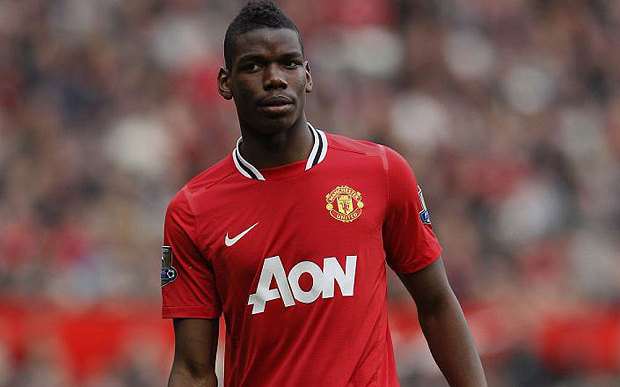
It was a harking back to when English football knew it was grim. Roast lamb, congealed gravy, in-laws for lunch, Thatcher… Except they were all driving Vauxhall Corsas, the players weren’t sat in five jackets each on the bench (it actually was a bench), and there was the sense that everyone involved had a reason and a duty, rather than an obligation, to care. Or at least enough pride to pretend that they did. The players still walked out to thumping music on Sunday, the Kop still sung their anthem; but this is where the theatre stopped, and the decaying reality of English football began. Because neither side looked like it was taking the rough and ready all too seriously, nor did they look as though they fancied putting on an exhibition, even in light of the fact that all but two of the 22 starters, Jesse Lingard and Ander Herrera the exceptions, were capped internationals. It was the old first division football without the bark, and Premier League football without the bite. The worst of both worlds.
The Ballon D’or 11’s much publicised failure to include any Premier League players was a shock to some, but to many others it was a familiar indication of a downwards trend that shows no signs of resurrecting. The league has lost Gareth Bale and Luis Suarez in recent years, and replaced them with Mesut Ozil and Alexis Sanchez. Fine players at the forefront of Arsenal’s title bid, but the reality of their departures from Real Madrid and Barcelona respectively can not, and must not, be ignored. They were the castoffs; the expendable individuals that Spain’s big two felt they could do without. Whether they always make the right decision is questionable, as Barca misfit Yaya Toure might attest, but also inconsequential. In the battle for relevancy, English football is falling fast.
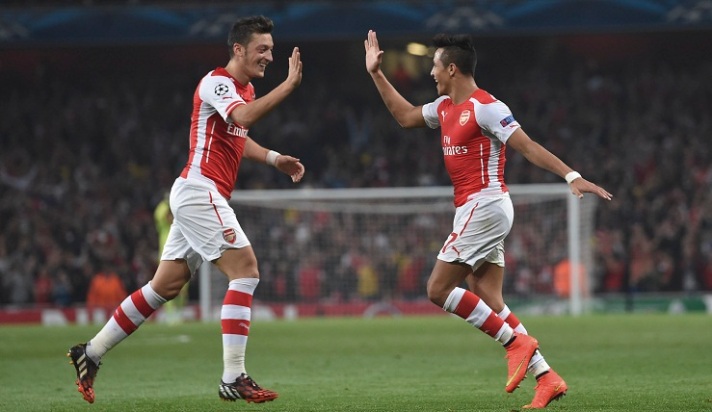
Marouanne Fellaini is what £30m buys in the Premiership these days. The Belgian is an excellent footballer, with the exception of when the ball is at his feet. Or Adam Lallana, the £26m man who, with every appearance he makes in red, calls into question why Liverpool didn’t take the cheaper option and exhume Harry Houdini if they were looking for someone to disappear. The 27 year old has managed four goals and eight assists in his 37 league starts since moving from Southampton, with none of the former and just two of the latter coming this campaign. I fear that even the hallowed magician would struggle to stay hidden for the 76 minutes that Lallana managed on Sunday.
“Manchester United, yet to register an effort on target” called a glib Jon Champion midway through the second half, as the camera panned onto a miserable looking Van Gaal, looking snug in his parka on parka on parka, “and now they’re struggling to muster a corner taker.”
The deadlock was broken on 78 minutes, when Fellaini’s post-bound header was finished on the rebound by United captain Wayne Rooney. He crashed it into the net with all the frustration of somebody who’d had to watch 78 minutes of this match, and still had 12 to go. In the process, he eclipsed Thierry Henry’s Premier League record of most goals for one player at one club. A grand record, in the least glorious circumstances.
Ultimately, the most poignant moment of the match was saved until its last throes. With injury time approaching and his side down a goal, Klopp brought on QPR loanee Steven Caulker to play up top. Yes Klopp, the world’s most fashionable manager, using the skeleton in the closet of old-school English managers; what to do when you’re just not sure – lumping the centre half at centre forward. It didn’t work for Klopp. It never works.
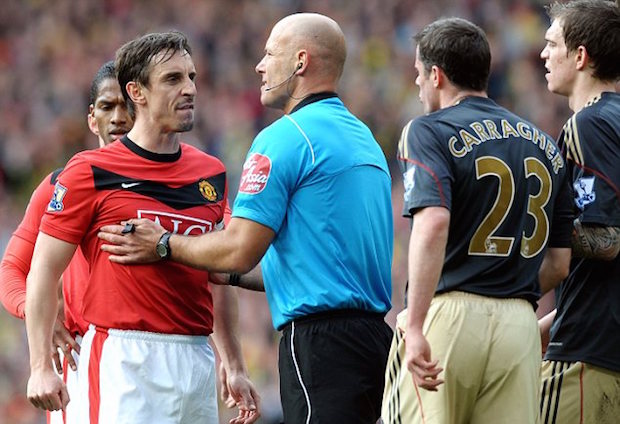
Still, as sad as it is to watch the fall of two clubs that we’ve loved to hate, and hated to love to envy; there have been reasons for optimism. Eddie Howe, every bit the old-school manager sans the restrictive stubborn streak, has led his unlikely Bournemouth side into mid-table in their first season of top flight football. In front of 12,000 fans, the Cherries still have players that were part of the campaign to stop them from entering administration and shutting up shop just six seasons ago in the fourth tier. Or West Ham United’s enigmatic collection of Frenchmen looking for a EURO berth, headlined by the enchantingly excellent Dimitri Payet, who have led them into a European qualification spot. Mark Hughes’ Stoke City is another worth mentioning. They’ve taken two outcasts from Barcelona, one from Bayern Munich and another from Inter, and turned the Premiership’s version of a school yard bully into an oddly attractive and thoughtful unit.
I don’t need to waste column space on leaders Leicester City, or rather I just don’t have enough of it. Riyad Mahrez and Jamie Vardy’s exploits this season have started a story that will be spoken of for years to come. Whether they can muster the title, or even just a top four spot, is irrelevant (to everyone but Leicester supporters) – because they’ve been the strongest signal yet that a change is coming.
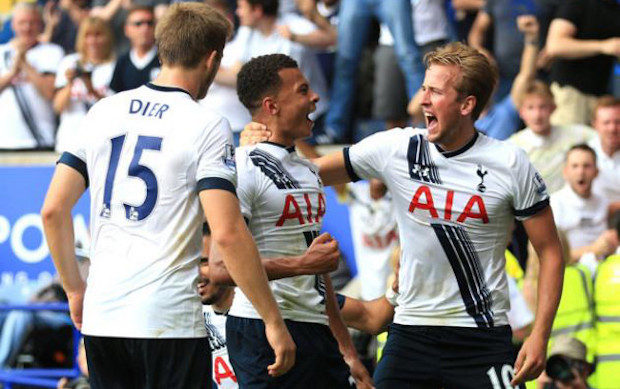
Another still is Tottenham, perennial top four bridesmaids that sit just a point off fifth but have had so much written about them in such positive tones. They play expansive, entertaining football and are led by a youth-team striker, a division three teenager and converted centre back who’ve come together to form the spine of a team that takes itself seriously and tries to play decent football. No James Milner or Ashley Young, players who’ve been in the modern trade long enough to see what a falsity it is; just young English footballers, barely out of school, with a bit of an idealistic streak that we can only hope is still present in the next generation. After watching Sunday’s debacle, I’m not convinced there will be.